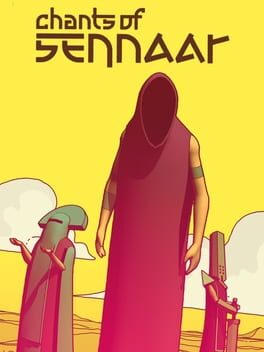In an earnest attempt to make a unique and emotional point-and-click game, Rundisc haven't quite managed to temper their ambitions and focus on the important parts.
It stands to reason that in a game all about various peoples being torn apart and pitted against each other by isolation brought about through archaic, othering traditions, you'd want to represent the actual pressure points between these groups in gameplay, show and not just tell. But doing so through goofy, ill-fitting stealth segments and boring roadblocks is hardly an interesting way to go about it. All the backtracking doesn't help the issue at all either, nor do the actual multiple mazes that you sometimes have to go through actual multiple times.
In the same vein, perhaps there needed to be more dialogue written to show the delusions the peoples of the tower harbour about each other. The bards talk about living in pure bliss and call you (and also everyone else) an idiot, and the warriors deem devotees to be akin to demons, but the devotees themselves barely have a social hierarchy to speak of, much less concrete beliefs about the other groups living in the tower. The scientists, in the meantime, are really just caught in everyone else's bullshit, wanting only to learn all there is about the world they find themselves in. And these divisions are very easily overcome: just translate the devotees' plea for an irigation system, and inform the bards' slaves that they can live free in the abbey. As a result of this whole "peoples torn apart" thing feeling underdeveloped, the 'true' ending feels good, but a bit forced, with decades, perhaps centuries of tribalism overcome, really, with just a couple conversations.
I'd be happy to treat this narrative as a cute little parable about how ignorance breeds bigotry and understanding begets unity and prosperity for all, but this specific part of the story just wasn't given enough attention. In the moment-to-moment, though the player character is explicitly a drone created to bridge the tower's divides, this is a tale of your journey. You get to desipher all these languages, you find out the histories and cultures of these people, and you are the hero who gets rid of this weird AI thing at the end. Even though Chants of Sennaar treats you as a literal translator-robot, it still tells your story, and the moment at the end, where every group in the tower gathers at the top to find out that (I think?) all their most central ideas are really the same and that they share a similar goal...feels somehow incidental.
But truth be told, even though a good bit of this game felt undercooked and unpolished, these small moments of you establishing connections between the different inhabitants of the tower, plus the deeply earnest final stretch, make this game a worthwhile experience. It's not GOTY material, but it doesn't need to be that to still have its fair share of brilliance.
It stands to reason that in a game all about various peoples being torn apart and pitted against each other by isolation brought about through archaic, othering traditions, you'd want to represent the actual pressure points between these groups in gameplay, show and not just tell. But doing so through goofy, ill-fitting stealth segments and boring roadblocks is hardly an interesting way to go about it. All the backtracking doesn't help the issue at all either, nor do the actual multiple mazes that you sometimes have to go through actual multiple times.
In the same vein, perhaps there needed to be more dialogue written to show the delusions the peoples of the tower harbour about each other. The bards talk about living in pure bliss and call you (and also everyone else) an idiot, and the warriors deem devotees to be akin to demons, but the devotees themselves barely have a social hierarchy to speak of, much less concrete beliefs about the other groups living in the tower. The scientists, in the meantime, are really just caught in everyone else's bullshit, wanting only to learn all there is about the world they find themselves in. And these divisions are very easily overcome: just translate the devotees' plea for an irigation system, and inform the bards' slaves that they can live free in the abbey. As a result of this whole "peoples torn apart" thing feeling underdeveloped, the 'true' ending feels good, but a bit forced, with decades, perhaps centuries of tribalism overcome, really, with just a couple conversations.
I'd be happy to treat this narrative as a cute little parable about how ignorance breeds bigotry and understanding begets unity and prosperity for all, but this specific part of the story just wasn't given enough attention. In the moment-to-moment, though the player character is explicitly a drone created to bridge the tower's divides, this is a tale of your journey. You get to desipher all these languages, you find out the histories and cultures of these people, and you are the hero who gets rid of this weird AI thing at the end. Even though Chants of Sennaar treats you as a literal translator-robot, it still tells your story, and the moment at the end, where every group in the tower gathers at the top to find out that (I think?) all their most central ideas are really the same and that they share a similar goal...feels somehow incidental.
But truth be told, even though a good bit of this game felt undercooked and unpolished, these small moments of you establishing connections between the different inhabitants of the tower, plus the deeply earnest final stretch, make this game a worthwhile experience. It's not GOTY material, but it doesn't need to be that to still have its fair share of brilliance.
